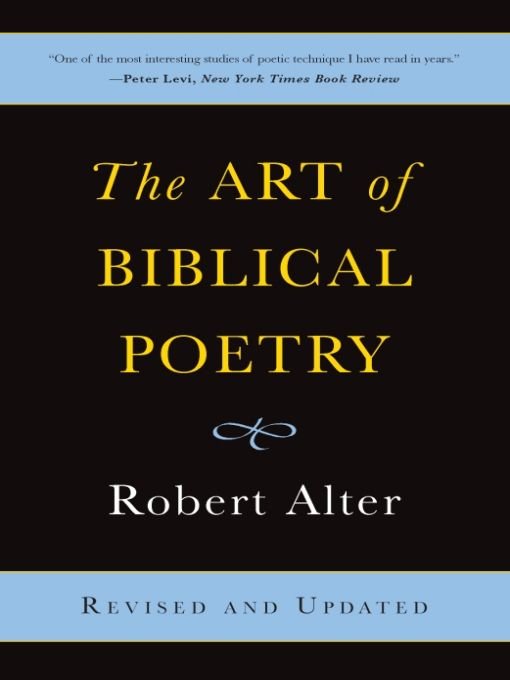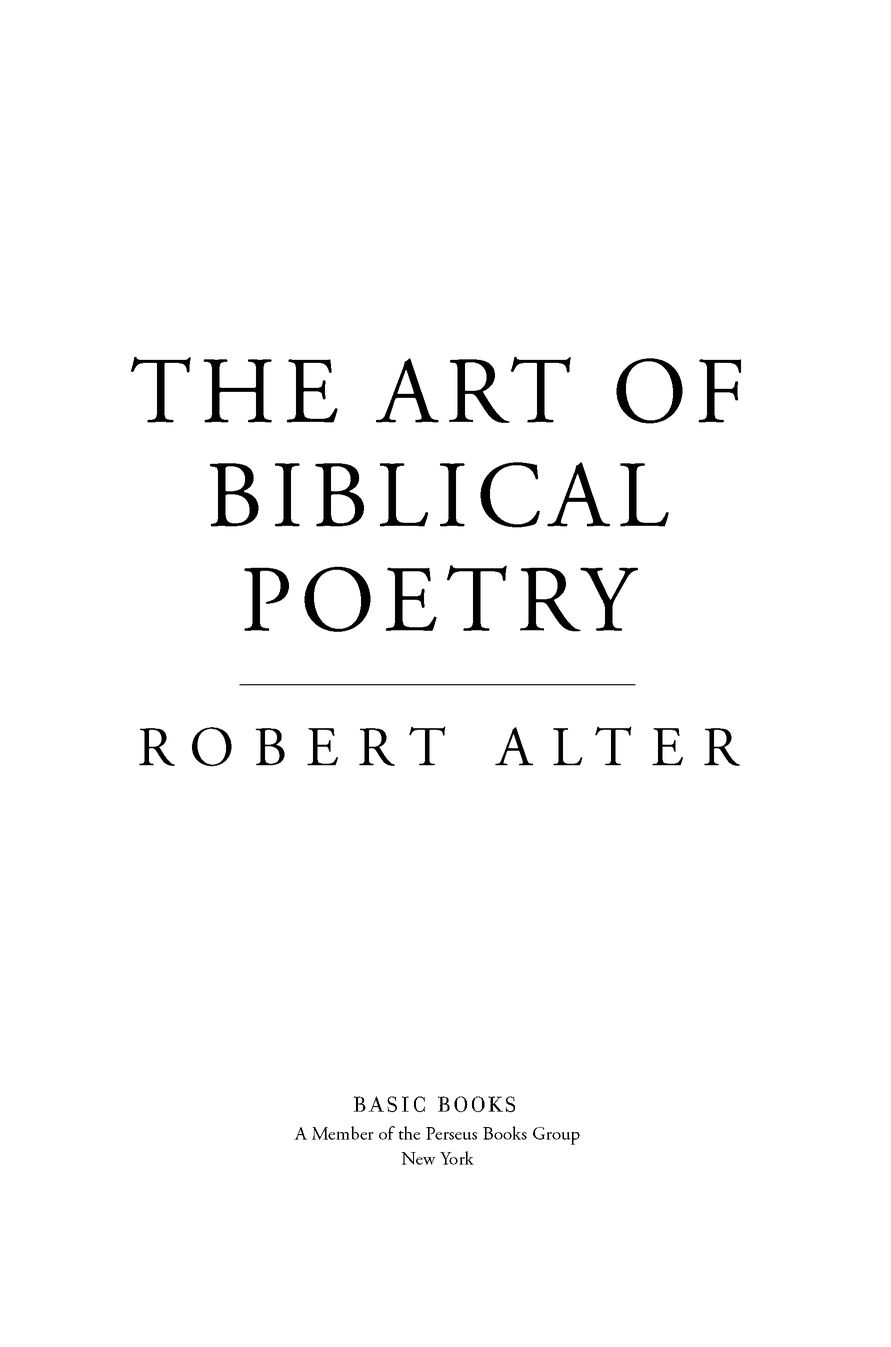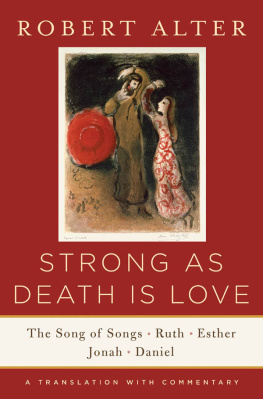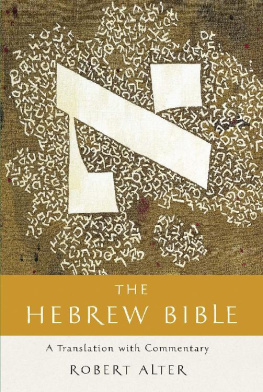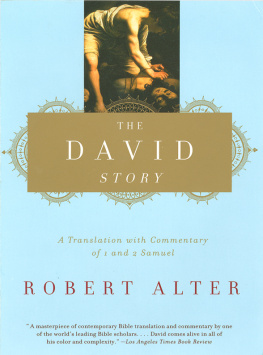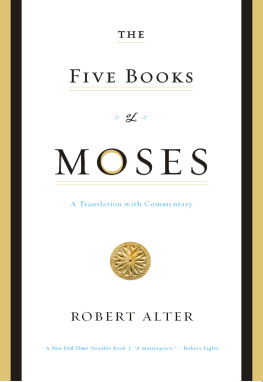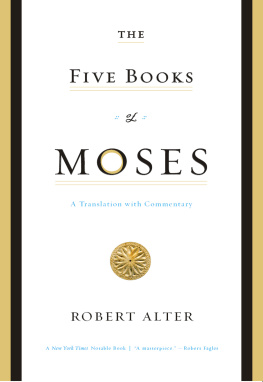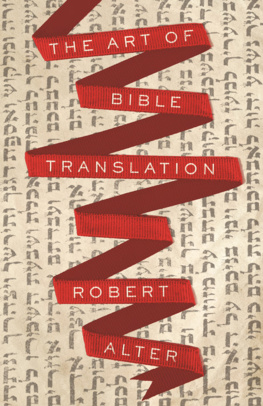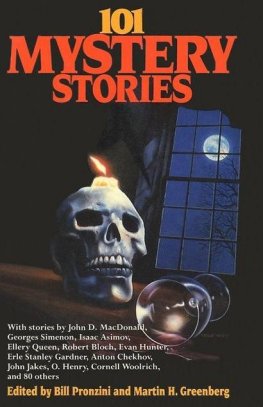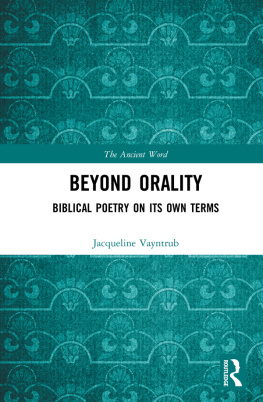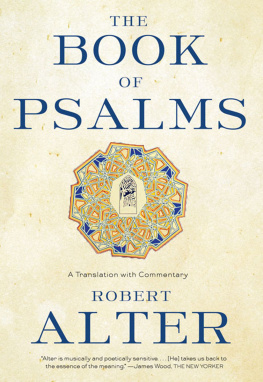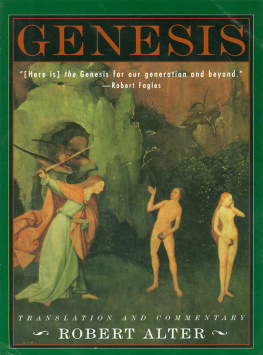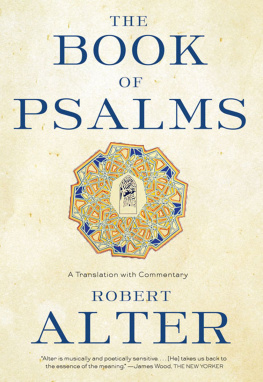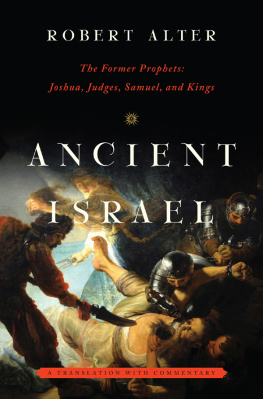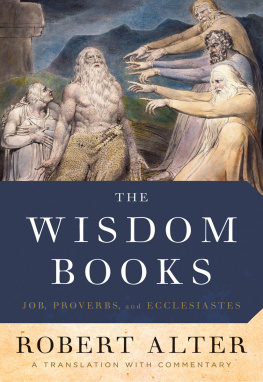PREFACE TO THE REVISED EDITION
Rereading this book carefully sentence by sentence after the passage of twenty-five years, I was pleasantly surprised to discover how well it held together. Though before 1985 I had occasionally written an article on poetry (modern rather than ancient), this was my first book devoted to poetry, and I myself might have expected some telltale signs of a critic venturing beyond his familiar territory of narrative and the novel. In retrospect, I think several elements in my own literary formation came together in the critical synthesis of this bookmy reading of the American New Critics as an undergraduate, my later acquaintance with Russian Formalism and with the Soviet semiotic theorists of poetry, a splendid course with Reuben Brower at Harvard on English Augustan poetry that made me appreciate the wit and subtlety of the heroic couplet and so better understand how poetry worked in Proverbs, and a passionate attachment since adolescence to the Hebrew of these biblical poems, their powerful rhythms pulsating within me and impelling me to strive for a better account of their poetic power than the ones in circulation.
The Art of Biblical Poetry has continued to be used as a classroom text and to reach general readers, but it is my impression that it has had less of an impact on the academic field of biblical studies than my book on biblical narrative. Because poetry is an intricate formal system that often involves minute linguistic maneuvers, the analysis here is in some ways more intricate than that in The Art of Biblical Narrative, though I did my best to frame it in terms that would be intelligible to the general reader, or at least to the patient general reader, and that might speak to people who love poetry. Biblical scholars, alas, rarely fall into that category. The kind of comprehensive critical definition of biblical poetry I attempt here, with a constant eye to the relation between poetic form and vision or value, has not spoken to a good many biblical scholars because the overriding importance of poetic form and poetic achievement does not figure significantly in their perception of the Bible. I have tried to propose in this book a description of the formal system of biblical poetry that looks at the observable configurations of the poems in a way that is flexible and relatively uncomplicated. By and large, biblical scholars, evidently not much accustomed to reading poetry, continue to argue, at times with mathematical intricacy, that some system of meter (a term avoided in this book) was the formal basis of biblical poetry. It is, perhaps, a mind-set better suited to deciphering unknown ancient languages than to the reading of poetry.
The account articulated here of how biblical poetry is organized and how that organization enables certain kinds of meaning still seems to me a more plausible description, and definitely one more useful to readers, than any of the competing proposals, and so I am happy to offer it in this revised version to a new generation of readers. The revisions, I should say, are quite limitedmore limited than for the new edition of The Art of Biblical Narrativebecause on the whole I found that the formulations I worked out a quarter of a century ago were tightly reasoned and the analysis of the poems still persuasive. Very occasionally, some local claim is made that I have now modified, or a phrase has been reworded for greater clarity. The most extensive changes, as with the book on narrative, are in the translations. For the prose, I came to see that I had produced English versions based on assumptions about how to translate the biblical language that I now firmly reject. This was not the case for my rendering of the poetry, but having published translations in the last few years of nearly all of these poems, with the exception of the Prophets and the Song of Songs, I think I have learned how to better attend to the rhythms of the Hebrew and how to better approximate in English their remarkable compactness. Also, because biblical poetry often presents special linguistic and textual difficulties, there are instances where, on consideration, I have made different decisions about how to construe certain terms or phrases in the poems. In consequence of all this, I have substituted my published translations of all the poems (plus a draft translation of the Song of Deborah) for the versions I did in the early 1980s, and I have also done some revision of the passages cited here from the Prophets and the Song of Songs in light of what I have learned about translating biblical poetry.
The lines of biblical poetry are informed by an often fierce or mesmerizing energy of assertion that sweeps from one part of the line to its parallel member and, frequently, from the line to a whole sequence within the poem. But, as I argue here in a variety of ways, there is subtlety as well as insistence in these seeming repetitions: utterances develop and change, miniature stories unfold. In great works of literature, almost always more is going on than one initially realizes, and this is especially true of the Bible, to which readers are likely to come with a baggage of preconceptions and habits of automated or inappropriate response. What I try to convey in these pages is an educated sense of the satisfying complexity and the sheer excitement of biblical poetry. It is my hope that this new edition with its refurbished translations will in some degree realize that aim.
Berkeley
Spring 2011

